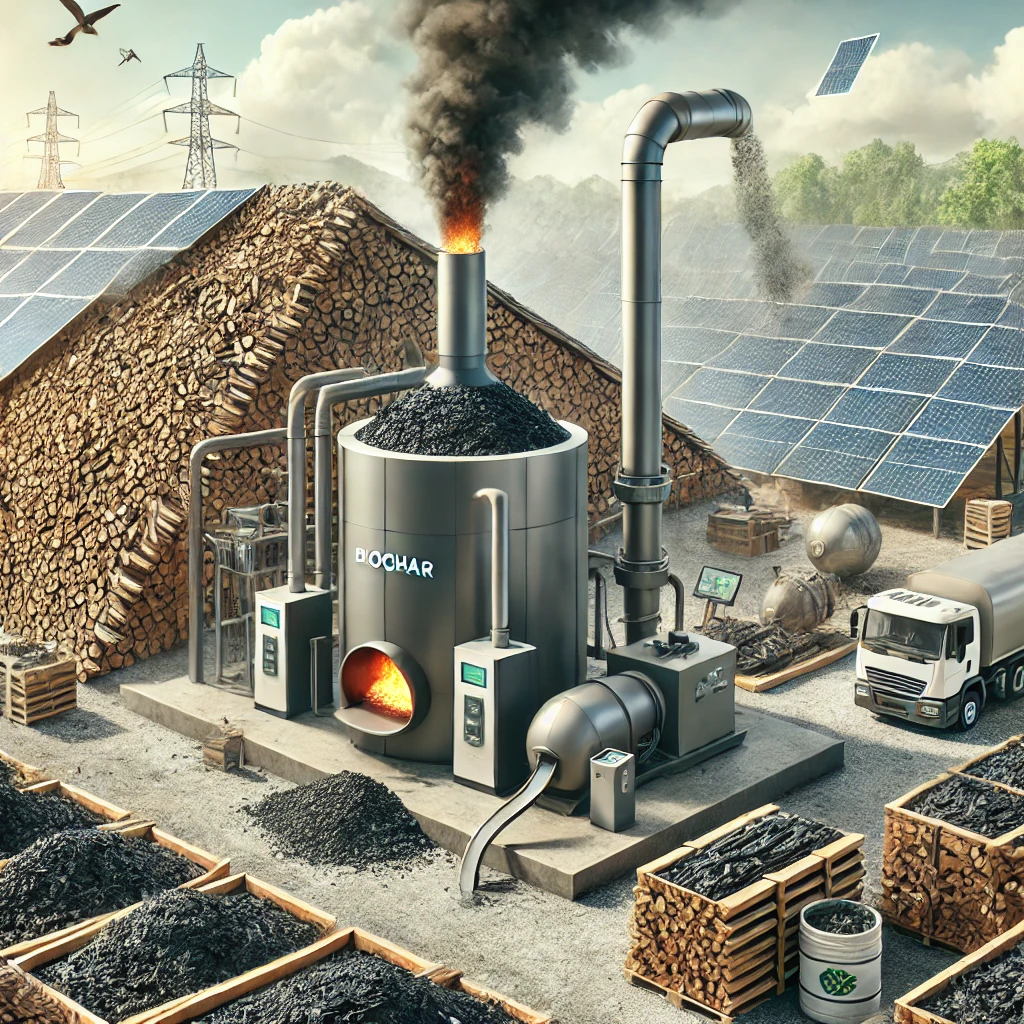Introduction
Imagine transforming agricultural waste into a valuable product that enriches soil, combats climate change, and generates revenue. Biochar production is not just an innovative startup idea; it’s a game-changer for sustainable agriculture and environmental conservation. This blog explores the potential of starting a biochar production business, delving into market opportunities, unique value propositions, business models, and more, inspired by the styles of TechCrunch, Entrepreneur, Fast Company, VentureBeat, Y Combinator’s Blog (The Macro), Inc., and AngelList Blog.
Market Analysis
The biochar market is on the cusp of exponential growth, driven by increasing awareness of climate change and the need for sustainable agricultural practices. According to recent reports, the global biochar market was valued at approximately $1.3 billion in 2020 and is projected to reach $3.1 billion by 2027, growing at a CAGR of 13.2%. The demand is fueled by biochar’s ability to improve soil health, increase crop yields, and sequester carbon. Major trends include the adoption of biochar in carbon markets, soil amendment applications, and its use in waste management.
Unique Value Proposition
What sets a biochar startup apart in the competitive landscape? Here’s how:
- Sustainability: Biochar production uses agricultural waste, reducing the need for landfills and cutting greenhouse gas emissions.
- Soil Enhancement: Biochar improves soil structure, enhances water retention, and provides essential nutrients, leading to higher crop productivity.
- Carbon Sequestration: Biochar is recognized for its ability to sequester carbon, offering a solution to combat climate change.
- Economic Benefits: The production process can generate energy, which can be sold or used within the production facility, creating an additional revenue stream.
Business Model
A biochar startup can explore multiple revenue streams to ensure profitability:
- Biochar Sales: Selling biochar to farmers, garden centers, and landscaping companies.
- Carbon Credits: Participating in carbon markets by earning and selling carbon credits for sequestering carbon.
- Energy Production: Utilizing the heat generated during biochar production to produce electricity or heat, which can be sold or used internally.
- Consulting Services: Offering expertise in biochar production and application to other businesses and agricultural entities.
Target Audience
Identifying and understanding the target audience is crucial for the success of a biochar startup:
- Farmers and Agribusinesses: Seeking sustainable soil amendments to improve crop yields.
- Garden Centers and Landscapers: Interested in soil enhancement products for their customers.
- Municipalities: Looking for waste management solutions and soil improvement for public spaces.
- Environmental Organizations: Focused on climate change mitigation and sustainable practices.
Development and Execution
The journey from concept to a fully operational biochar startup involves several critical steps:
- Research and Development: Invest in R&D to refine biochar production techniques and ensure product quality.
- Technology and Equipment: Acquire or develop the necessary technology and equipment for efficient biochar production.
- Location and Resources: Secure a location with access to agricultural waste and necessary utilities.
- Regulatory Compliance: Navigate environmental regulations and obtain necessary permits.
- Team Building: Assemble a team with expertise in biochar production, marketing, and business management.
- Pilot Testing: Conduct pilot tests to validate production processes and product efficacy.
- Full-Scale Launch: Scale up operations based on pilot results, focusing on production efficiency and market penetration.
Funding and Investment
Securing funding is vital for launching and scaling a biochar startup:
- Grants and Subsidies: Explore government grants and subsidies for sustainable agriculture and waste management.
- Venture Capital: Attract venture capitalists interested in sustainable and environmentally friendly startups.
- Crowdfunding: Utilize crowdfunding platforms to raise capital while building a community of early adopters and advocates.
- Loans and Credit: Consider traditional bank loans and credit lines for initial capital expenditures.
Financial projections should account for initial setup costs, operational expenses, and anticipated revenue streams. Highlighting the long-term profitability and environmental impact can attract investors.
Challenges and Risks
Launching a biochar startup comes with its own set of challenges:
- High Initial Costs: The setup costs for technology and equipment can be substantial.
- Regulatory Hurdles: Navigating complex environmental regulations can be time-consuming and costly.
- Market Penetration: Educating potential customers about the benefits of biochar and establishing a market presence.
- Supply Chain Issues: Ensuring a consistent and reliable supply of agricultural waste for production.
Mitigation strategies include building strong relationships with suppliers, investing in marketing and education campaigns, and staying abreast of regulatory changes.
Success Stories and Case Studies
Several startups and companies have successfully ventured into the biochar market, providing valuable insights and inspiration:
- Cool Planet: A leading biochar producer that has raised significant investment and partnered with agricultural giants to enhance soil health and sequester carbon.
- Biochar Supreme: Known for its high-quality biochar products, the company has demonstrated the commercial viability of biochar in various agricultural and environmental applications.
- Black Owl Biochar: This company has successfully integrated biochar into various markets, including agriculture, landscaping, and environmental remediation.
These success stories highlight the potential for a well-executed biochar startup to thrive in the market.
Call-to-Action
Are you ready to dive into the future of sustainable agriculture and environmental conservation? Start exploring the biochar production business today. Whether you’re an entrepreneur looking for your next big venture or an investor seeking impactful opportunities, biochar offers a unique and profitable path forward. Share this article, engage with our community, and join the movement towards a greener, more sustainable world.
Mobile Optimization
Ensuring this content is mobile-responsive is essential for reaching a broader audience. The layout should adapt seamlessly to different screen sizes, and images and videos should load quickly. Optimize for fast loading times to enhance user experience and reduce bounce rates.
Biochar production presents a compelling and sustainable business opportunity. By leveraging the growing market demand, unique value propositions, and strategic business models, a biochar startup can thrive and make a significant environmental impact. With careful planning, execution, and investment, the journey from startup idea to market leader is within reach.

